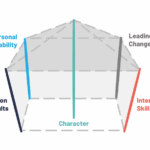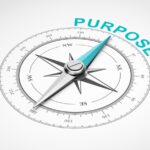How much sleep do you really need? Good sleep is the key to our physical and mental health. Let’s talk about how to find your “sweet spot.”
I am writing this under a cloud of sleep tracker “frowny-face” shame. Apparently, my sleep patterns could use a little work. Which I fully acknowledge. But the caution-danger-yellow daily frown is a bit much. The frown did get me thinking…how much sleep do I truly need? And, why?
By nature, I am a night-owl which served me well in college, as a 20-something, and as the mother of a newborn. I am none of those these days. Now I am a working, professional mom who wakes up by 6:00 am and runs at full power until roughly 9:00 pm every day, even weekends. According to sleep experts, I should take advantage of that 9:00 pm time slot as the trigger to wind down for bed. On the nights I pay attention to that trigger and have the TV/phone/lights turned off before 10:30 pm I sleep like a rock. The next morning, I wake up before my alarm to a green smiley face on my tracker, and it’s oddly gratifying.
Why don’t I follow that pattern every night? Because the 9:00 pm time also signals the first time all day I can relax, open a book, or start watching whatever show I’m hooked on while I try to keep pace with conversations among my friends (note: I still haven’t started watching Ozark…it’s on my list). The 2 hours I tend to steal between 9:00 pm – 11:00 pm mean I generally can’t even fall asleep until well past midnight, and it does take its toll the following day. It also incurs another disappointed tracker frowny face.
To help convince myself to pack it in a little earlier at night, and possibly make time elsewhere in my evening to wind down, read, binge-watch Netflix (or even skip it!), I studied up on the power – actually, the SUPERPOWER – of sleep. And what I found wasn’t totally surprising or new to me, but it was impactful.
First and foremost, I need to inform the tracker that 8 is not a magic number. While the National Sleep Foundation does recommend between 7-9 hours per night for adults ages 18-64 (see infographic below), they acknowledge it is deeply personal and individual, and shifts as we age. Their take is this: “Sufficient sleep duration requirements vary across life span and depend on the individual.
Their most eye-opening suggestion – from my perspective – was to simply keep a sleep log for a few days (or weeks) where you 1) log what time you went to bed at night, 2) when you woke up in the morning, 3) the number of times you were up during the night (pesky bathroom trips). In parallel, keep a log of what you ate each day, your exercise schedule, and anything out of the ordinary. At the end of the journaling period, scan and look for trends. How do the days after a good night’s sleep feel? What do they have in common? What patterns do you see?
I followed this recommendation, along with the help of my sleep/activity tracker, and it hit me between the eyes. I am far more energized, active, and productive on the days after I’ve had a solid 7.5 hour of sleep. Good, quality sleep. I also snacked less, ate healthier meals, and consistently ate breakfast on those days. Because I was so energized and active, I tended to naturally go to bed earlier. The real key something I already intuitively know – I need to listen and pay attention to my body.
If you need more proof, more facts about why sleep truly is your superpower, here it is: while you’re sleeping, your body is working. Hard. It’s boosting your immune system, regulating your blood sugar, balancing hormones, all while your brain is processing the information overload you’ve been experiencing all day and helps sort and file it for you.
On the flip side, when you don’t get enough sleep, this finely tuned system isn’t given the time it needs to do its work. Not only does this result in immunity and hormonal imbalances (cue the inflammation!), but it really messes with your mood and ability to handle stress. And all that data your brain has been frantically trying to sort over an abbreviated period? Much of it gets lost, or remains scattered about in your brain unfiled, which leads to anxiety, forgetfulness, and stress. It’s also harmful to your long-term memory.
That’s enough to convince me that sleep truly is an underrated superpower. I know there will be nights when I toss and turn, the quality of sleep won’t be excellent, or I’ll wind down later than planned. But, deliberately planning and getting into a pattern of winding down early to ensure I get between 7-9 hours of sleep per night? I can do this, because it really is the key to not just our physical health, but mental health. Less stress and anxiety? Sign me up!







